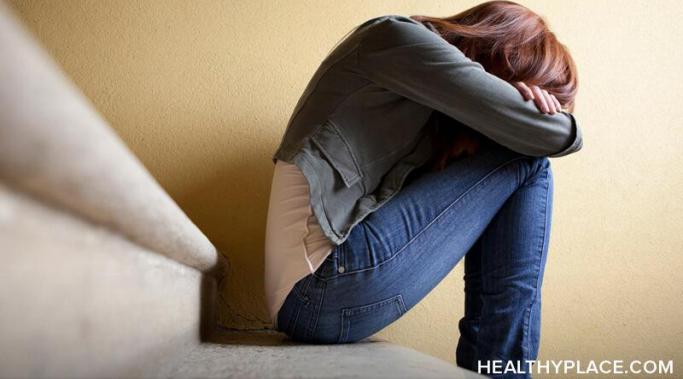Blogs
Our expectations about self-harm recovery sabotage us. You see, when you are in the depths of your self-harm, it is hard to imagine life without it. Even if you want to stop, it feels overwhelming and daunting because you figure that in order to be able to stop, the problems that made you turn to self-harm in the first place would have to be resolved. In other words, the circumstances surrounding your recovery would have to be completely different from the circumstances surrounding your self-harm. But this is a lie we tell ourselves that will sabotage our self-harm recovery.
Low self-esteem after rejection is a common occurrence. We may successfully build our self-esteem, only to have it fall apart following a rejection of some sort. This is a universal experience, not something that only people with low self-esteem struggle with. Rejection can be acutely painful. It can make us feel not good enough and lead to some very unkind and harsh thoughts about ourselves. Job rejection and romantic rejection are two very common experiences of rejection. They can both really knock our confidence (although we tend to feel the most hurt from romantic rejection).
Eating disorders often elicit both competition and comparison among those who suffer, and this can especially be rampant within the context of eating disorder treatment. Because society tends to normalize and glamorize disordered eating behaviors, the inclination to compete over being the "thinnest person in the room" does not suddenly disappear inside a controlled, therapeutic environment. The amount of rules and supervision are heightened in treatment, but the fixation with remaining "skinny enough" is difficult to switch off. This mindset is rooted in insecurity, self-hatred, shame, and negative body image, so feeling the need to compare or compete serves as a distraction from those uncomfortable emotions. But the fact is, competition and comparison in eating disorder treatment will exacerbate suffering and counteract recovery.
My mental illness is part of my identity because of its huge impact on my life. When I was first diagnosed with schizoaffective disorder, I thought everything in my life could go back to the way it was before my symptoms got out of hand. I didn't know my life would take a sharp turn in a different direction.
You most likely experienced a trauma trigger if you have ever experienced a strong emotional response to a person or event that seemed disproportionate to the situation. Most people experience trauma triggers, often without conscious awareness. When we don't know how to identify our triggers, they can interfere with our happiness. A trigger occurs when you encounter someone or something in your environment that reminds you of a traumatic experience from your past. It doesn't have to be a significant trauma. Any reminder of a painful event you haven't fully resolved might manifest in your life as a trigger, and it can limit your ability to create happiness.
Learning how to cope with suicidal thoughts combined with borderline personality disorder (BPD) is extremely important. Suicidal thoughts, suicide attempts, and self-harm behaviors are all a major part of the borderline diagnosis. I’ve written about suicidal thoughts and borderline personality disorder before, but today I’d like to focus on how to cope with suicidal thoughts in BPD and what to do when these thoughts arise. Today, I’ll share with you how I learned to self-soothe and cope with big feelings and suicidal thoughts in BPD. With Suicide Prevention Month almost behind us, I believe it is so important to open the conversation and dialogue about borderline personality disorder, coping with suicidal thoughts and suicide prevention. The stigma surrounding borderline personality disorder is real and so is the stigma surrounding suicidal thoughts.
It's important to talk about your anxiety because anxiety can be a very isolating experience. It makes you aware that you are thinking about certain situations or thoughts in a way that others don't, which can lead to feelings of uncertainty and a desire to keep those experiences to yourself. I had this experience with my anxiety for a long time because I didn't want my friends and family to know I was struggling. I was also afraid that if I did share my experiences, they would be scared or wouldn't want to spend time with me anymore. Eventually, I realized that by doing this I was hiding my genuine self from others and that I was preventing my relationships from being as intimate, trusting, and mutually supportive as they could be.
I want to talk about suicide and attention-deficit/hyperactivity disorder (ADHD) because September is Suicide Prevention Month. Though ADHD has a reputation in our society for being either a punchline or an excuse, it is important to note that people with the condition have a 30% higher risk for attempting suicide or dying by suicide.1 There are a number of reasons for this, including high comorbidity (when multiple conditions exist in the same person) with other disorders, such as depression or anxiety. Read more to find out what contributes to this high suicide rate in people with ADHD and what we can do to help prevent it.
"This too shall pass" is an affirmation I've not always believed. When it feels as though life has beaten you down too many times, it can be really hard to believe in the power of positive affirmations. But I recently found that remembering the affirmation "this too shall pass" has helped me stay hopeful for change. Read on to learn about how this affirmation has positively impacted my mental health.
I tell my mental illness story with tattoos because they both tell stories and help us tell our stories. Those stories can be about anything, and countless people have gotten their skin permanently marked with representations of their journeys with mental illness, myself included. My tattoos give me the opportunity to share my mental illness story and talk about mental health in general. Most conversations are positive, but as with most things mental illness-related, stigma is never too far off.









